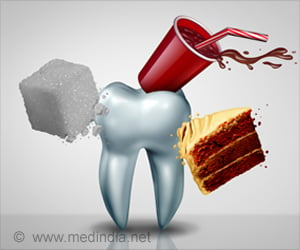Plant-based alternatives to dairy are creating waves, but dairy is special in relation to oral health because of its positive effects on oral health.
- Plant-based alternatives to dairy are all the rage lately
- A recent study highlights the importance of dairy products for oral health as compared to plant-based dairy alternatives, which may be more cavity-inducing than dairy //
- Dairy products also have a significant amount of casein, a protein attributed to helping reduce decay in teeth
According to research, there is a bi-directional relationship between nutrition and oral health, with poor dentition limiting one's capacity to consume a healthy, balanced diet and unhealthy dietary habits leading to poor dentition (1✔ ✔Trusted Source
Poor oral health and the association with diet quality and intake in older people in two studies in the UK and USA
Go to source).
Why Dairy Products are Good for Your Teeth
Dairy foods play a crucial role in a balanced, nutritious diet when it comes to dental-positive diets.Milk, cheese, and yogurt are naturally nutrient-dense superfoods that provide protein, calcium, and a variety of other nutrients. Aside from its general nutrition qualifications, there is a plethora of evidence associating dairy with improved dental outcomes.
With the rising market for plant-based alternatives, it is critical to assess how these products compare to the specific benefits of dairy, as well as the overall influence on oral health. Dental health and nutritional comparability are sometimes disregarded when it comes to plant-based alternatives.
Shkembi and Huppertz's recent study published in Nutrients looks at plant-based milk substitutes, items marketed as yogurt that are acidified, and cheese substitutes that are gelled in relation to dental health (2✔ ✔Trusted Source
Impact of Dairy Products and Plant-Based Alternatives on Dental Health: Food Matrix Effects
Go to source).
Oral Health: Comparing How Plant-Based Dairy Alternatives Fare Against Dairy
Carbohydrates
The primary carbohydrate found in milk and dairy products is lactose, which has been found to be less acidogenic and cariogenic than other sugars.
Plant-based foods contain sucrose, glucose, and maltose, all of which are more cariogenic than lactose and promote less favorable dental results as compared to milk, which only contains lactose as a source of carbohydrates.
Minerals
Similar amounts of calcium and phosphate are present in plant-based beverages as they are in milk; however, these minerals must be supplied through fortification, and the amount of each mineral varies between brands and plant-based products.
According to research, dairy items such as milk and cheese can help replace nutrients that your teeth may have lost as a result of other diets.
Proteins
With caseins making up over 80% of the total milk protein, caseins are the most prevalent kind of protein in milk. Casein's antimicrobial effect has been attributed to a number of processes, including casein phosphopeptides, adsorption to enamel, acid buffering, and an elevation in plaque pH.
Additionally, due to their antimicrobial properties, other milk components such as lactoferrin, lysozyme, and lactoperoxidase may help make milk less cariogenic.
How can Nutrition Optimize Oral Health?
Choose The Right Drinks: Water and Milk
The healthiest beverage available is water. By maintaining sufficient hydration, the body is better able to transmit beneficial nutrients, remove waste, and maintain good organ function.
The second best beverage choice after water to encourage good dental health is milk, which can be a nutritious addition to any meal or even consumed any time of day. It also comes in both full-fat and low- or reduced-fat variants (3✔ ✔Trusted Source
Association between milk and dairy product intake and the risk of dental caries in children and adolescents: NHANES 2011-2016
Go to source).
Cut Down Added Sugars
Reduce your intake of added sugars. The number one cause of dental decay is the regular use of discretionary food and drinks, including acidic sweets and snacks such as lollies and fruit juices (4✔ ✔Trusted Source
Added Sugar and Oral Health: A Position Paper of the Brazilian Academy of Dentistry
Go to source).
Follow the Proper Guidelines for Servings
A cup (250ml) of milk, three-quarters of a cup (200g) of yogurt, two slices (40g) of cheese, and half a cup (120g) of ricotta cheese constitute one serving from the dairy food category.
References:
- Poor oral health and the association with diet quality and intake in older people in two studies in the UK and USA - (https://pubmed.ncbi.nlm.nih.gov/33468264/)
- Impact of Dairy Products and Plant-Based Alternatives on Dental Health: Food Matrix Effects - (https://www.ncbi.nlm.nih.gov/pmc/articles/PMC10056336/)
- Association between milk and dairy product intake and the risk of dental caries in children and adolescents: NHANES 2011-2016 - (https://www.researchgate.net/publication/352888212)
- Added Sugar and Oral Health: A Position Paper of the Brazilian Academy of Dentistry - (https://pubmed.ncbi.nlm.nih.gov/35464781/)
Source-Medindia











